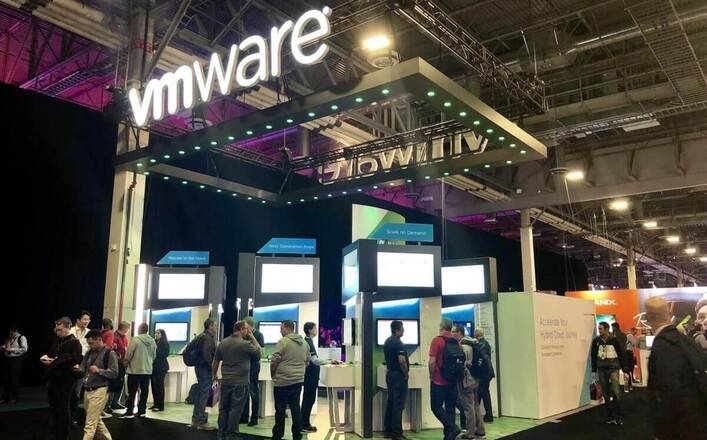Broadcom has officially launched VMware Cloud Foundation (VCF) 9.0, marking a major milestone in private cloud infrastructure with one of the most comprehensive updates to its platform to date. The release is now generally available, offering enterprises a unified cloud operating model that spans on-premises data centers, edge locations, and hyperscaler-managed infrastructure.
Designed to integrate the performance and control of private infrastructure with the agility and scalability of the public cloud, VCF 9.0 positions itself as a cornerstone for modern application environments, including AI, traditional enterprise software, and cloud-native development.
VCF 9.0 introduces a fully re-architected platform that allows organizations to deploy, manage, and scale private cloud environments with significantly reduced complexity and improved operational efficiency. A single platform now supports both virtual machine and containerized workloads, streamlining DevOps efforts and IT administration. This latest iteration of VMware Cloud Foundation delivers a host of capabilities designed to accelerate digital transformation initiatives, particularly those requiring flexible infrastructure for demanding compute workloads such as AI.
Krish Prasad, senior vice president and general manager of Broadcom‘s VCF Division, emphasized the broad appeal of the new platform: “With VMware Cloud Foundation 9.0, we’re simplifying operations while offering the performance, governance, and security that modern enterprises demand. Customers are seeking private cloud solutions that allow them to run legacy and AI-native applications with equal ease – and that’s exactly what we’re enabling.”
One of the most striking improvements would be the Quick Start App and unified cloud management interface, which together reduce deployment times and operational overhead. Integrated cost governance tools, centralized access and identity management, and new fleet-level automation features allow administrators to oversee complex infrastructure from a single dashboard. Broadcom claims these enhancements can increase administrative productivity by up to tenfold and offer twice the speed in log insights, critical for rapid response in high-demand IT environments.
Security Architecture
Customers already adopting VCF 9.0 are seeing tangible results, according to Broadcom. At IPZS, Italy’s government printing agency, CIO Paolo Bazzica noted a 70 percent reduction in manual IT tasks due to automation within the VCF platform, while simultaneously improving application delivery speed and resilience. At Ratiodata, head of managed workplace Michael Heier reported an estimated 25 to 30 percent reduction in server footprint and power consumption, citing improved VM density and resource utilization. Similarly, the University of Bristol transitioned from legacy infrastructure to a flexible and secure VCF-based private cloud, which now supports AI workloads and academic services more effectively.
The platform’s security architecture has also undergone major evolution. With support for the latest confidential computing features from AMD and Intel, VCF 9.0 enhances workload protection through encrypted memory, secure enclaves, and attestation capabilities. The new SecOps dashboard offers security insights and compliance data in real-time, helping IT teams maintain consistent policy enforcement across multi-site deployments.
For organizations looking to optimize cloud spend, VCF 9.0 provides predictive cost modeling and automated resource optimization, enabling smarter capacity planning and more accurate chargeback mechanisms. These tools provide a level of transparency often lacking in public cloud environments, giving enterprises greater financial control.
VCF 9.0 is not only a platform but also a launchpad for extended cloud services. Broadcom has announced a range of advanced services bundled into the VCF ecosystem, including enhanced AI capabilities in partnership with NVIDIA, robust disaster recovery with VMware Live Recovery, and integrated security with VMware vDefend.
GPU-as-a-Service
The VMware Private AI Foundation with NVIDIA now offers GPU-as-a-Service with multi-tenancy support, high-performance AI model inference via NVIDIA NIM, and tooling for agent creation. Live Recovery for VMware introduces isolated clean rooms for cyber recovery, enabling greater data sovereignty and disaster preparedness. VMware vDefend integrates micro-segmentation, distributed intrusion detection, and zero trust enforcement, all aligned with the VCF 9.0 platform for streamlined deployment.
In addition, VMware’s Data Services Manager (DSM) 9.0, currently in tech preview, introduces enterprise-grade DBaaS for PostgreSQL, MySQL, and Microsoft SQL Server. This expands VCF’s data services capabilities and allows enterprises to manage large database fleets more efficiently through integration with VCF Automation. The Avi Load Balancer has also been updated for self-service operations and Kubernetes-native load balancing, further reducing the overhead for application scaling and performance optimization.
Related Articles on VMware
VMware Cloud Foundation 9 Released, Accelerating Private Cloud Adoption
At VMware Explore 2024, Broadcom launched VMware Cloud Foundation 9, a next-generation private cloud platform designed to unify IT infrastructure, improve security, and reduce costs. VCF 9 offers enterprises a low total cost of ownership by integrating automation and operations, enabling faster deployment of virtual machines, enhanced network capacity, and improved storage performance. IDC research highlights significant cost savings and productivity gains for users, with a 564% ROI over three years. Customers like GCI and the U.S. Senate Federal Credit Union have already benefited from streamlined operations and AI-powered innovation with this platform. Read article.
Top 10 Alternatives to VMware for Modern Virtualization Needs
This article explores the leading alternatives to VMware for virtualization, highlighting options such as Microsoft Hyper-V, OpenStack, KubeVirt, and Xen. It discusses how Hyper-V integrates seamlessly with Windows environments and offers no additional licensing fees, while OpenStack provides an open-source, cost-effective private cloud solution. KubeVirt extends Kubernetes to manage virtual machines alongside containers, and Xen offers robust security and resource management for enterprise virtualization. The article provides a comprehensive overview for organizations considering VMware alternatives based on their specific IT environments and needs. Read article.


